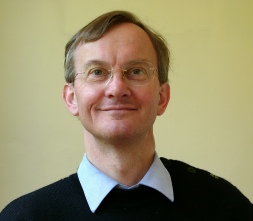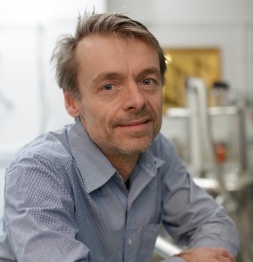Imperial researchers win three Wellcome Trust Investigator Awards

Academics at Imperial College London have won three prestigious Wellcome Trust Investigator Awards to support their research into health and disease.
Academics at Imperial College London have won three prestigious Wellcome Trust Investigator Awards to support their research into health and disease.
Professors Steve Matthews (Life Sciences) and Charles Bangham (Medicine) won Senior Investigator awards, aimed at rewarding established academics who are world-leaders in their field, and Dr Angelika Gründling (Medicine) received a New Investigator Award, which recognises outstanding researchers in earlier stages of their independent research careers.
The Wellcome Trust Investigator Awards were introduced in 2011 to provide additional funding for researchers who already hold academic positions. The scheme’s purpose is to give exceptional researchers the freedom they need to address the most important questions about health and disease.

Professor Charles Bangham
Professor Bangham’s work deals with retroviruses, types of virus such as HIV that integrate their DNA into the cells they infect. Once inside, the virus stops replicating and is carried around in the host cell’s DNA. Because the virus lies silent, it cannot be attacked by drugs or by the immune system. Only when the virus is reactivated does it become susceptible. Professor Bangham is seeking to understand how the virus controls the balance between silence and reactivation, allowing it to persist indefinitely in the host. The results will help researchers understand and treat retroviral infections.

Professor Steve Matthews
Professor Matthews has been examining the process by which bacteria congregate in biofilms, dense communities of cells which are more resistant to natural immune reactions as well as to antibiotics. Biofilms are formed when bacteria secrete amyloids, strands of protein which keep the cells tightly packed together. Although many bacteria can produce amyloids, they can also be toxic to cells if formed at the wrong time or place. Bacteria have devised elegant solutions to control inappropriate amyloid formation, an ability Professor Matthews hopes to understand in greater detail.

Dr Angelika Gründling
Dr Gründling’s research examines how bacteria make use of molecules called signalling nucleotides to adjust to changes in their environment. Her research centres around a newly-discovered signalling molecule called c-di-AMP which is found in many types of bacteria. It is also essential for the survival of Staphylococcus aureus, a species of bacteria responsible for causing life-threatening infections. A deeper understanding of the cellular processes in this organism would help us understand its resistance to a wide variety of drugs, and allow for its eventual treatment.
Professor Matthews and Dr Gründling are part of the cross-Faculty Medical Research Council Centre for Molecular Bacteriology and Infection.
Article supporters
Article text (excluding photos or graphics) © Imperial College London.
Photos and graphics subject to third party copyright used with permission or © Imperial College London.
Reporter
Press Office
Communications and Public Affairs
- Email: press.office@imperial.ac.uk
